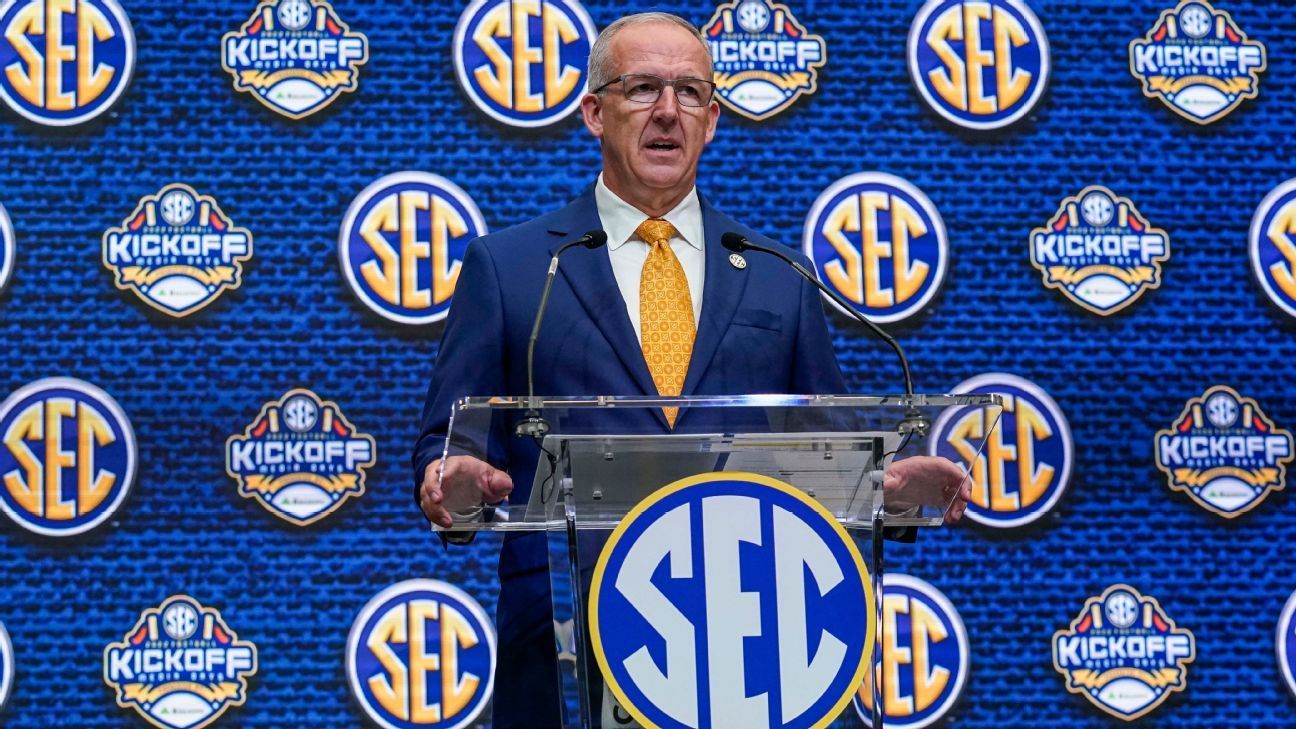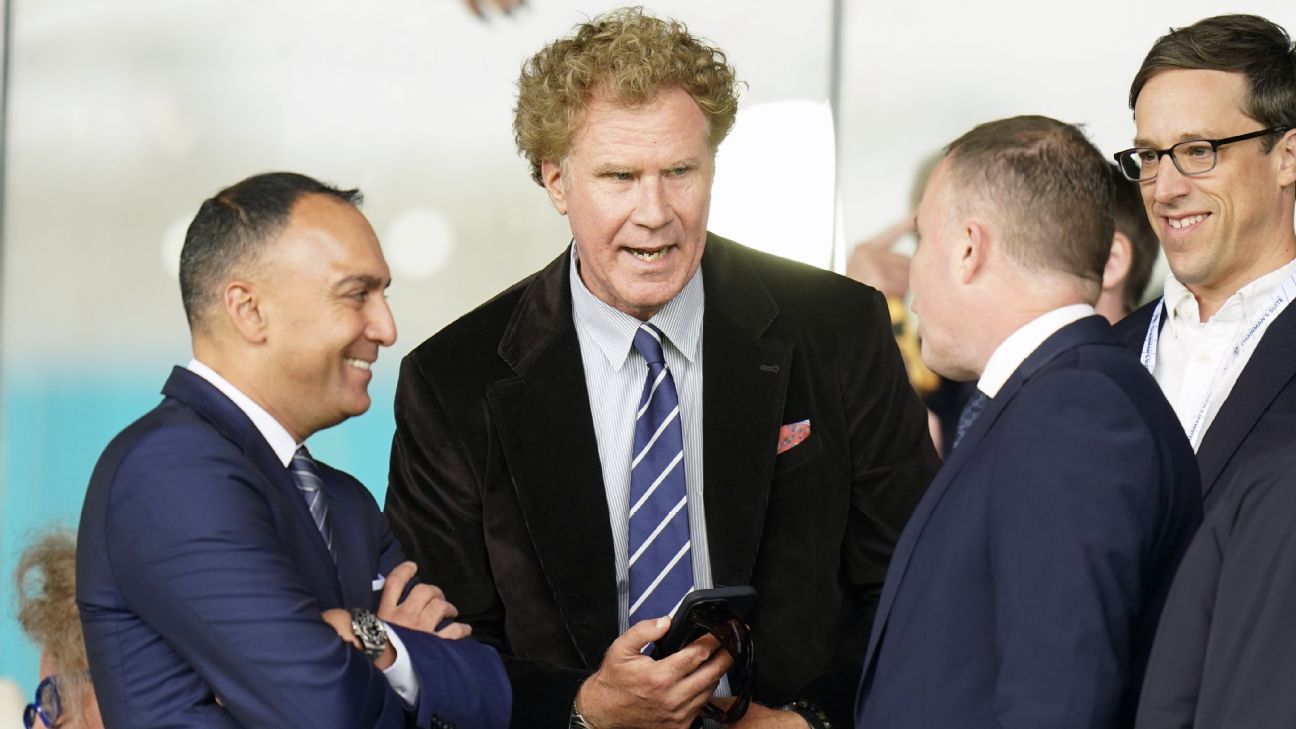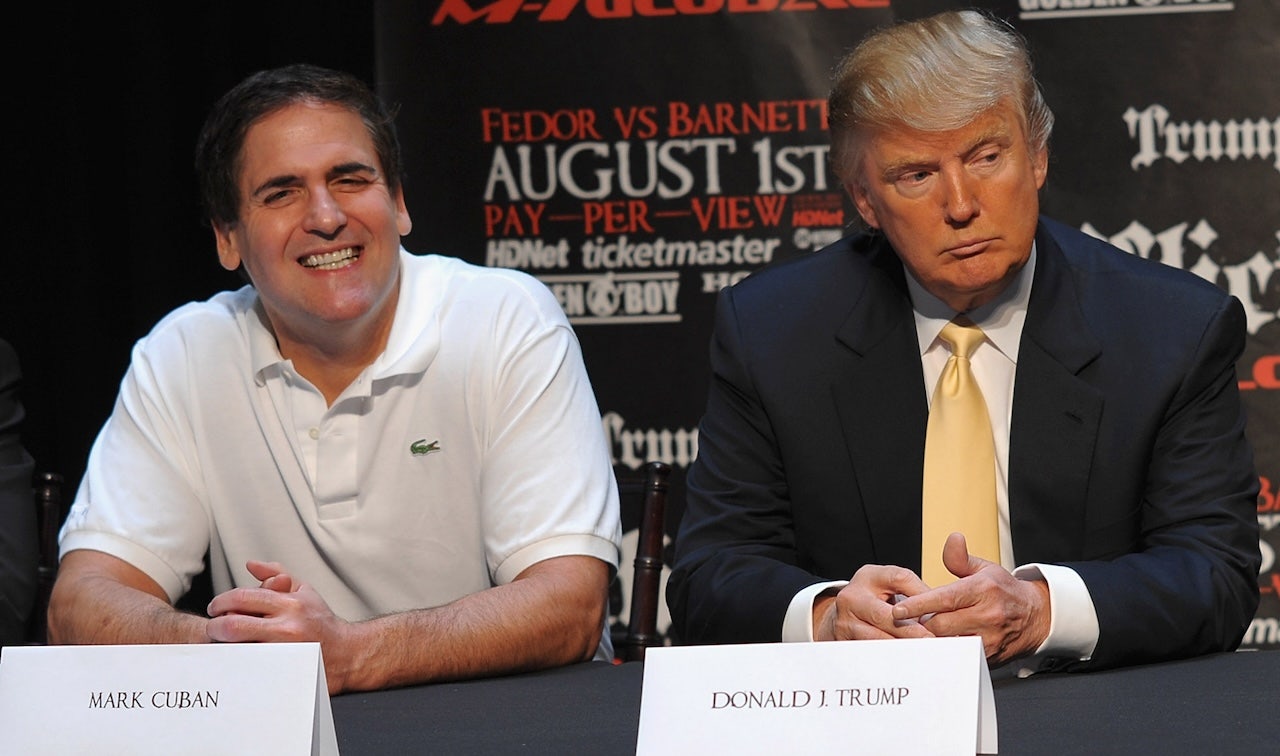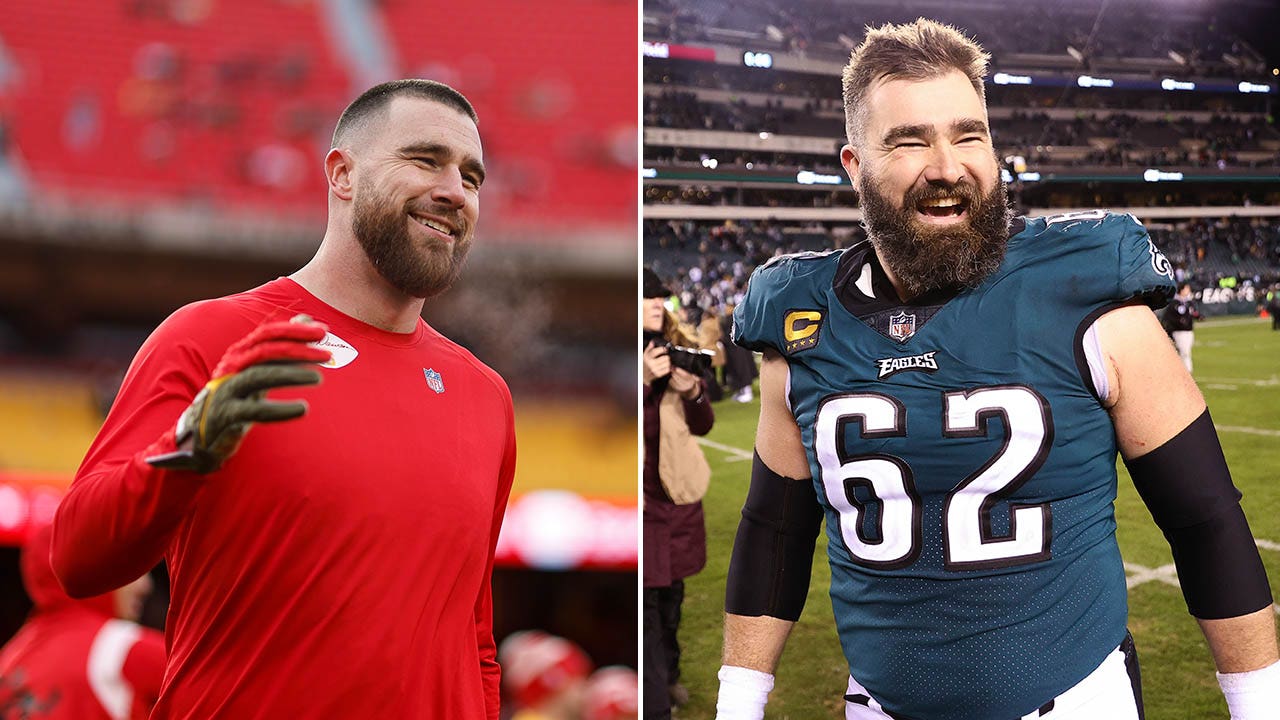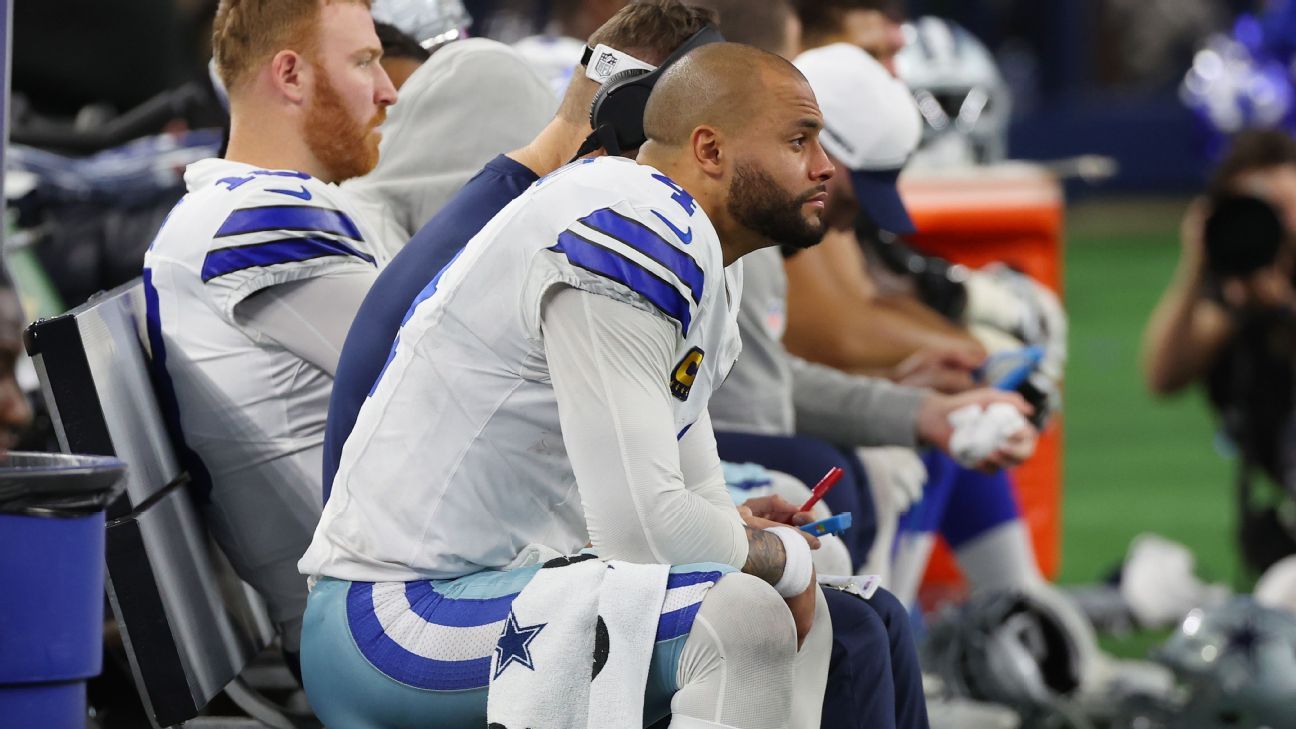DESTIN, Fla. — SEC Commissioner Greg Sankey laid out in general terms Monday night what Congress's help for college sports could look like, saying college sports are “a national system that deserves national standards “.
In his opening remarks at the SEC annual meetings here, Sankey addressed what college sports could look like in the wake of a deal between the Power 5 conferences and the NCAA to resolve three antitrust cases.
As terms of the deal were agreed upon in recent weeks, college sports officials cautioned that it should not be viewed as a magic solution to the problems (both legal and otherwise) in college sports, but rather as just the beginning to forge a new era. where schools share revenue with athletes.
“I believe Congress still has an opportunity to use the structure of this agreement to enact legislation that strengthens the future of college sports,” Sankey said.
Sankey said he has already been to Washington, D.C., at least five times this year. He added that as he begins his 10th year as SEC commissioner, one significant change is the number of members of Congress on his phone. He described the effort evolving from “curiosity” to “a little bit of interest” and that the education of what is needed would be “continuous repetition.”
“I would appreciate action between now and the election,” Sankey said. “Most people I talk to say that's unlikely, so their educational process will continue after the election, and it will depend on who is leading each party within the House and Senate, where they are located the majorities and who occupies the White House. Those realities guide the conversations.
“So as much as it's been unpredictable, I think it's going to continue to be that way.”
Any congressional action would likely include components of nationalizing rules and avoid the current patchwork of state laws. Some, but not all, of that ambiguity is expected to be mitigated by the agreement. But Sankey noted that employment remains a vexing issue and that, traditionally, a group needs to have employee status to bargain collectively.
“The breadth of the agreement is intended to give us a way forward, to provide a level of clarity about the future that does not automatically incorporate employment,” he said.
Sankey said no student has approached him and told him they want to “be [taxed] like a lawyer.”
“There are those who advocate for that reality,” he added. “That brings me back to a fundamental statement, which is that there is no better time to be a student-athlete than this in the history of college sports. There is no better time. And again, they don't call me and say, 'I want to be an employee.”
NCAA President Charlie Baker, the former governor of Massachusetts, has been regularly in Washington in an attempt to help build momentum for a bill. There have been nearly a dozen hearings on college sports in recent years and more than a half-dozen bills drafted, but little tangible traction.
“Obviously, we're in an election year,” Sankey said. “Congress is a challenging place to get a job done, and I say that respectfully; there is a lot on the plates of our members of the House and Senate.”
Sankey also dove into a number of other issues that will come up at the SEC meetings, including how the conference will address the distribution of proceeds from the deal while complying with Title IX. Sankey noted that the SEC has won four national championships this year, all in women's sports. He said the league has to “wrestle with this new piece.”
“Our tendencies have been to provide some equity,” he said. “This is a very different world. I hope that we get opinions, perspectives, and we have time to learn to know those perspectives, and then we will have to analyze what that means from a decision-making point of view.”
The NCAA deal has also sparked speculation about limiting a team's roster size as part of the new business model, a possibility that has caused consternation among some football coaches because an 85-man limit would likely eliminate walk-on positions. previous. But Sankey said he told the coaches individually, “Hey, guys, slow down.”
“I know other conferences have discussed it,” he said. “Coaches have texted our coaches. They get excited and we said hold on. Let's have a conversation. That's where it is: a concept. Understand that football gets attention, but we have 21 championship sports, all of them who need to have a level of conversation about that piece of the roster.”
Sankey also said “there will have to be some change” in how the NCAA enforces its rules and how schools are told to follow them. After the terms of the agreement are final, Sankey said he hopes the league will look at state laws because they are all written differently.
“There are some options,” he said. “There's some openness about what that could look like. I'm not going to limit that.”
In addition to the important issues surrounding the NCAA agreement, Sankey addressed a wide range of topics that the league will also discuss this week, including the player availability report. It's a project some staff members have been working on since last summer, but Sankey said no decisions are expected this week.
“We don't want to rush into something,” he said. “It's not about reporting injuries. It's a very different circumstance given some of the privacy issues we have. However, when you start looking at the amount of dollars being wagered in legalized sports betting around college sports, it's not Not only football, but also men's and women's basketball, volleyball, baseball… they all catch your attention.
“We have to reflect on how information is managed.”
ESPN's Dan Murphy contributed to this report.

